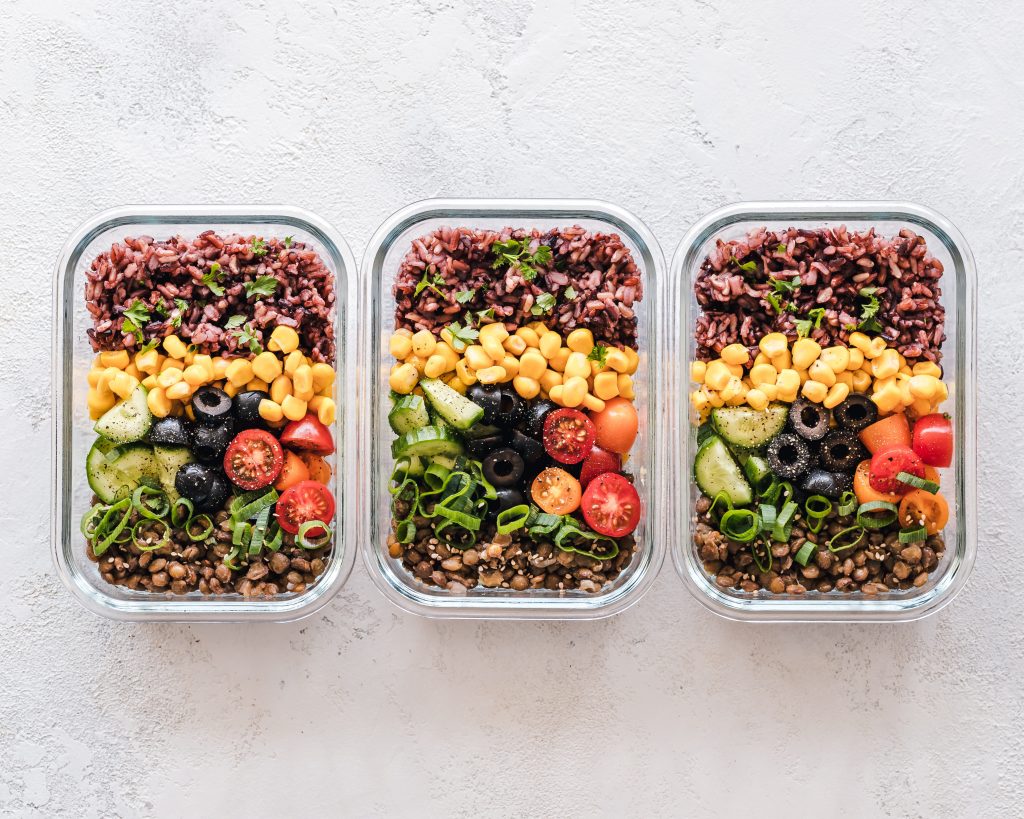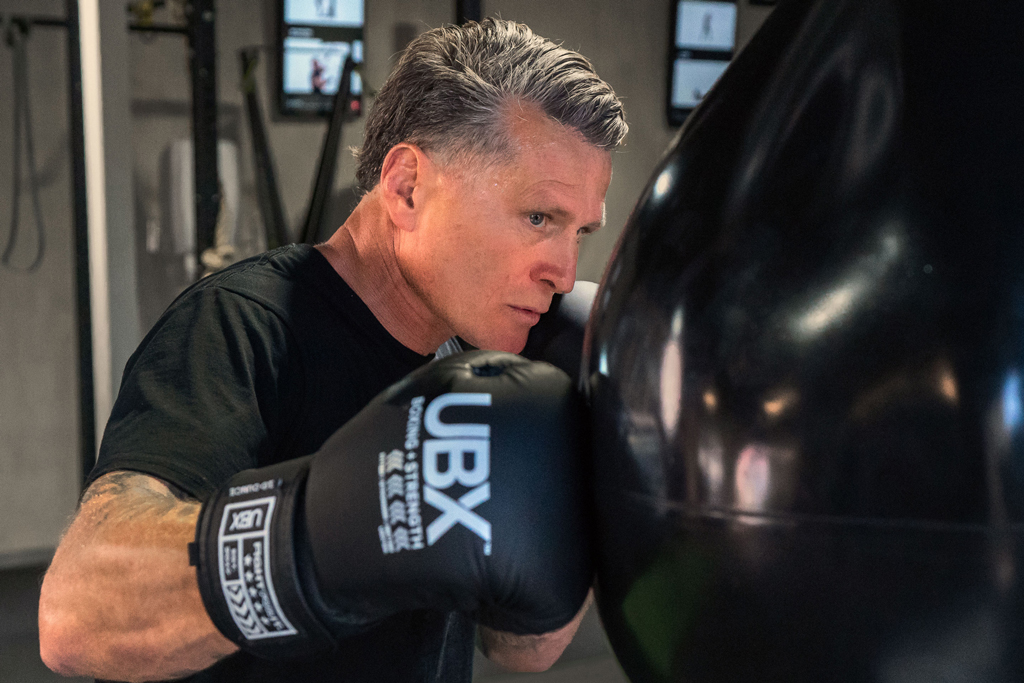When you were born, you did not come into the world desiring sugary foods, pizza, cake or wine. This was all learned behaviour. The brain can be retrained to ingrain healthy food habits, and it all comes down to behavioural changes. There are many ways to establish strong nutritional habits, and if you’re doing, or have done a Training Camp with us before you’ve already started this journey. Eating nutritious food, planning your week ahead, focusing on your training, sleep and recovery, are all steps towards long-term change.
We all know that eating a healthy diet is good for your overall health, yet why is it so hard to maintain good eating habits over time?
Well, the world we live in celebrates with food (and alcohol). Eating and drinking is an extremely pleasurable social activity and food is now more accessible than ever before. Combine that with the fact the food, beverage and grocery industry is a trillion-dollar industry, its no wonder that we are bombarded with food choice, and not always of the best kind.
Throughout the Training Camp, we provide a structured meal plan to follow. You have received shopping lists, recipes, balanced meals and recommended portion sizes to help keep you on track. So, how do you thrive and stay on track when you don’t have this structure, and create good nutrition habits for the future? Here are our top tips!

1. Be Prepared and Plan Ahead
Failing to plan is planning to fail. Preparation is key.
Planning ahead of time ultimately allows you to take control of your choices. Mapping out your weekly menu enables you to;
- Choose healthier meals for the household
- Shop more efficiently
- Save money by buying foods
- Reduce food waste
- Enjoy eating a variety of different meals in your week
By creating a weekly meal plan, having a shopping list and staple pantries list, you are more likely stay on track. This also applies when you leave the house, always have a nutritional plan for your day. Ideally, have your lunch and snacks with you and ready to go. If you forget your meals or you enjoy eating out, find a few cafes in your local area that offers healthy options and support your goals. Cafes that have wraps, sandwiches, juices, sushi and fresh fruit are ideal for helping you to stay on track. This way when the hunger pangs hit you, you have a plan, rather than just reaching for anything in sight or having to choose from a challenging menu.
2. Recognise times of the day where you often sabotage your results or are triggered to eat mindlessly
We all struggle at certain times throughout the day, and for a lot of us, emotional eating can be triggered by the way we feel. Do you feel hungry when you are stressed or fatigued? Are you always reaching for something sweet in the afternoons?
Once we can recognise these trends and habits, we can make a plan for it. If you always have a sweet craving around 3pm, don’t feel content after a meal or always need that glass of wine with dinner, It may be due to not having enough protein or carbohydrates earlier on in the day. By balancing your meals with all three macronutrients (protein, carbs and fats), you will be giving your body the nutrition it needs, reducing your cravings later in the day. This is a common pattern seen in those individuals who skip breakfast or skimp on carbs earlier in the day.
Having strategies for these times is the best way to combat mindless snacking. Try to ensure that you have high protein snacks available, as they will keep you feeling satisfied and fuller for longer. Simple snacks such as yoghurt and berries, protein bars, nuts and seeds, tuna with crackers, bliss balls, cottage cheese, fruit and protein shakes are great substitutes and delicious alternatives to have on hand.
3. Eat predominantly home cooked meals
We all know that one of the simplest ways to improve your health is to prepare more meals at home. It can be so tempting to eat out often, yet when we eat out we are less aware of what is going into our food. By cooking at home, you can ensure you are getting the right nutrition on your plate and can ensure you are eating fresh, wholesome food. Eating at home helps you to:
- Balance your meals and macronutrient spread
- Meet your energy requirements
- Hit your protein targets
- Achieve your goals
Restaurants often serve up much larger portions than we need and dowse our meals in sugar, salt, oils and additives. In addition, convenient restaurant food can take a significant toll on your mood and health, and may leave you feeling tired and bloated. By eating food as naturally as possible, the whole family will feel healthier, lighter, enjoy better quality sleep, have more energy and feel on track with their lifestyle choices.

4. Increase your vegetable and fruit intake
Dietary fibre helps to keep you full for longer, keep you bowel movements regular and keeps your gut happy. Foods high in fibre are great sources of vitamins and minerals and are essential for a healthy diet. Vitamins and minerals help your metabolism to function optimally and aid in converting food into energy. Therefore, a meal plan high in vitamins and minerals will help your body to work more efficiently. Fibre is found in fruits, vegetables, wholegrains and legumes and has many health benefits, especially if your goal is weight loss and overall health. Dietary fibre is also associated with lowering the risk of heart disease, diabetes and some cancers.
Throughout the Training Camp meal plan, you will see great amounts of fibre in your salad bowls, and vegetable medley-based meals. These meals are large in volume and nutrition, yet low in calories. By increasing your fibre intake, you are looking after your health, waistline and also ensuring that you are receiving nutrient density in your meal plan.

5. Prioritise protein
Protein is the building block of your muscles. Protein is also the most satiating (satisfying) macronutrient, which means that it will keep you fuller for longer and can help to regulate your appetite. If you want to get a little scienc-ey, it increases the level of peptide YY which is a hormone that makes you feel satisfied and it also works to decrease your levels of your hunger hormone ghrelin.
Throughout the Training Camp, you have substantially increased your training. Adequate intake of protein helps to maintain your current level of muscle mass and helps to promote muscle growth after your sessions.
6. Prioritise how much water you are drinking within a day
When it comes to hydration, it is important to understand that water is absolutely vital for life. Without water, we as humans cannot function. We often underestimate the importance of water in our diet, yet it is essential for optimising our body function, performance and recovery of muscles. It also helps us to digest our food optimally, without adequate water how do you imagine food makes it way through those tight tubes of your gastrointestinal tract? The need for water far surpasses the need for any other nutrient.
For more information on the importance of staying hydrated, check out this blog post.
7. Focus on good sleeping habits
Sleep is where the body’s intramuscular chemistry and synthesis occurs, it is often something that is overlooked. When we sleep our body releases hormones and growth factors which are essential for repair and muscle adaptation. Our workouts are only half of the picture, the other imperative stage of changing our body composition and physiology occurs while our body is at rest. Getting 7- 8 hours of quality sleep a night plays one of the most significant roles in optimising physical performance, increasing your health and achieving your body composition goals. You can track your sleep on an app to bring awareness to how much deep rest you are truly getting on a daily basis.
8. Ask your friends and family to support you
Support makes change much more achievable, enjoyable and manageable long term. Changing your eating and exercise habits can be extremely challenging. Your community, family, partner, peers and direct environment play an enormous role in your health outcomes. Emotional support and encouragement are so important in the long-term health picture, especially when it comes to commitment. Afterall, these changes aren’t short term, they are here for the long haul. There will be times where motivation peaks and troughs, which is all a part of the journey. After all, you are not a robot, and you cannot regulate motivation year round. However, having friends and family that are aware of your goals and support your changes will make the entire process more achievable, supportive and enjoyable. Whether it be someone to mind the kids when you want to train, having a helpful hand in the kitchen or a friend to pick you up and keep you on track. We all need a support network.
Supportive behaviours aren’t always contagious, and it is important to remember that everyone is on their own journey. Let’s be honest, it can sometimes feel hard and ostracizing to be the only one at ‘Happy Hour’ or ‘Taco Tuesday’ that wants to stick to their lifestyle plan. However, surrounding yourself with likeminded others, speaking to your friends and family and sharing your dreams and goals will help to set you up for success long term. Never forget why you started and remember that this journey to health and wellbeing is lifechanging, you are striving to be the best version of yourself. Never give up!








